Profiles of Buhari’s Economic Advisory Council (EAC) members
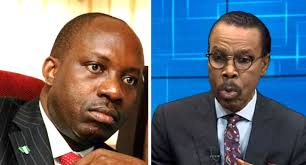
Doyin Salami
A 1989 doctorate degree graduate in Economics of Queen Mary College, University of London, Doyin Salami was born on the 4thApril, 1963. Prior to university education, he was a student at Igbobi College in Yaba, Lagos between Sept., 1974 and June 1980. He successfully completed the GCE ‘A’ level in June 1981andbegan undergraduate studies at Queen Mary College, University of London in October 1981. He is presently Managing Director and Head Markets Practice at KAINOS Edge Consulting Limited. In addition to his work as a Consultant, he is member of the Adjunct Faculty at the Lagos Business School (LBS), Pan-Atlantic University. Until June 2017, he was a full-time member of the LBS Faculty and attained the rank of Senior Fellow/Associate Professor. Outside Nigeria, he taught on the ‘Global CEO Programme’ jointly organized by IESE Business School, Spain; Lagos Business School, Nigeria and Strathmore Business School, Kenya; He was also a member of the faculty for the ‘Doing Business in Africa’ Programme at Switzerland’s St. Gallen University’s; he’d also joined Harvard Business School’s faculty, led by Prof. Debora Spar, to deliver the executive seminar ‘Making Markets Work’ in Rwanda.
Dr Salami had established the research firm, Edward Kingston Associates (EKA), where he was a Part-time Consultant. In 2014, Edward Kingston Associates merged with Soft skills Limited, another consulting firm, to form KAINOS EDGE CONSULTING, a firm that provides comprehensive data, analytical and advisory services in support of decision making. In addition to teaching and consulting, he is involved in public policy. At the end of December 2017, he successfully completed 2 terms (4 years each) as a member of the Monetary Policy Committee (MPC) of the Central Bank of Nigeria. He had been a member of the Federal Government’s Economic Management Team during the tenure of late President Musa Yar’Adua. Presently, he is a member of the International Monetary Fund’s (IMF) Advisory Group for Sub-Saharan Africa (AGSA). He is also a member of the Board of Directors of the Nigeria Economic Summit Group (NESG) and had the privilege of being Co-Chair of the Central Organizing Committee for the Nigerian Economic Summit in 2009.In 2015, he served as Vice-Chairman of the APC Presidential Transition Committee for President Muhammadu Buhari. He also sits on the board of companies which include ARM-Investment Managers Ltd., Prestige Assurance Plc., Access Pension Fund Custodian.
Bismarck Rewane
He is the managing director of Financial Derivatives Company Limited. With more than 30 years’ experience as an economist, banker and financial analyst he has served on the boards of many companies within and outside Nigeria.
Prof. Chukwuma Soludo
Soludo, economics professor is synonymous with the Nigerian banking sector consolidation when he was the governor and chairman of the board of directors of the Central Bank of Nigeria (CBN) in 2004.
A member of the British Department for International Development’s International Advisory Group, Soludo also worked as a consultant for a number of international organisations, including the World Bank, the United Nations Economic Commission for Africa, and the United Nations Development Programme.
Dr. Shehu Yahaya
He isthe chairman of the Board of Directors of Development Bank of Nigeria (DBN) Plc, with an outstanding career in the academia and development finance. He has held several management and executive positions, including executive director of the African Development Bank (AfDB) and member, Monetary Policy Committee of the CBN.
Before joining the AfDB, he served as deputy general manager at Nigerian Export-Import Bank (NEXIM). He was a lecturer in macroeconomics at the Department of Economics in the University of Sussex, United Kingdom (UK) and head of Economics Department in Bayero University Kano (BUK).
Mohammed Sagagi
Sagagi has a Certificate Course in Making Markets Work for the Poor from Springfield Center, Durham UK; PhD (Economics) from University of Warwick, Coventry, England (1985) with thesis on Commercial Policy and Industrialization in Nigeria; and M Sc. (Economics) from the University of Warwick, Coventry, England (1981).
He bagged his B Sc. in Economics with First Class Hons. from Ahmadu Bello University, Zaria, Nigeria in 1977. He serves as Political Economy and Government Relations Adviser at a DFID-funded Programme on Skills Development and Entrepreneurship (Mafita) in Northern Nigeria.
He is an Economist and Development Consultant with a strong academic background and extensive private sector experience in Nigeria. His expertise and ability to carry out research, conduct diagnostic studies, design interventions as well as formulate practical development strategies.
According to his details, he has interests in political economy and sustainability of interventions- and play crucial roles in ensuring that Political Economy and sustainability issues are (a) integral to design and (b) part of the day-to-day management of all interventions. He has participated in a number of federal, state and local governments of Nigeria reform programmes.
Prof. Ode Ojowu
Ojowu is a Professor of Economics. He obtained a First Class Honour’s Degree in Economics from ABU in 1974. He was employed as a Graduate Assistant in the Department of Economics, Ahmadu Bello University (ABU) Zaria. After his NYSC in 1975, he won the AFGRAD Fellowship Award under which he completed his MA and PhD in Economics from the University of Connecticut, USA between 1975 and 1980 and returned to ABU.
Prof. Ojowu was appointed commissioner for finance and economic planning in Benue state between 1984 and1985 under the leadership of Brig. Gen Atom Kpera. Between 1989 and 1991 Prof Ojowu was consultant/Co-coordinator of Nigeria’s Industrial Master Plan sponsored by UNIDO and from 1994 to 1999 he was a member of the National Economic Intelligence Committee (NEIC) with oversight function over the national budget and PTF projects under General Sani Abacha. Between 2004 and 2005 he was a member of the federal executive council with specific responsibility as the chief economic adviser to President Olusegun Obasanjo and chief executive officer of the National Planning Commission. Upon exit from government in 2005, Professor Ojowu returned to the University of Jos from where he retired in 2007 to private life. He has however continued to work as consultant to organizations like the DFID, UNDP, and the World Bank and federal/state governments. In 2008, he set up the Country Policy Centre (CoPoC) which he now directs. In November 2008, he was appointed pro-chancellor and chairman of council, Benue State University till March 2016.In 2011, Prof Ojowu was awarded the national honor of OFR. Prof Ojowu practices farming and he is active in national and community service. Currently, Prof Ojowu is of the Daily Trust Newspaper, chairman, board of economists where issues of fiscal and monetary policies, economic development and diversification and budgetary issues are analysed with recommendations routinely published for the attention of the government and other stakeholders.
Dr. Mohammed Adaya Salisu
Born on October 2, 1059 in Mamudo, Potiskum local government area of Yobe State, Salisu is married with 3 children. He bagged PhD in Economics from Lancaster University, Lancaster, United Kingdom (1990). His thesis was titled Oil Exports and the Nigerian Economy: An Econometric Study. He also bagged MSc degree in Economics from University of Maiduguri, Maiduguri, Nigeria in1986 and BSc (FIRST CLASS HONS) in Economics also from University of Maiduguri, Maiduguri, Nigeria, in 1982.
Iyabo Masha
Born on November 10, 1960 in Lagos, Masha is a global economist with a demonstrated history of working in central banking and financial markets, economic management, international lending, finance and development. Strong focus on macroeconomic stabilization policy research and implementation.
She has worked with the International Monetary Fund since 2003 in Washington D.C. Metro Area. According to her, the assignments in more than 10 emerging markets (Asian and African countries) focus on comprehensive economic management including: (i) policy reform advisory services and dialogue with governments (ii) financing and lending programs; (iii) analytic research and economic modeling and forecasting. Specifically, she helps design for national governments and central banks, implementable solutions specific to their circumstance.
She also ensures that key economic and financial policy reforms are focused on fiscal and debt sustainability; foreign reserve adequacy; improving the transmission mechanism of monetary policy; achieving depth, safety and soundness in the financial sector; and managing capital fl
She worked at Central Bank of Nigeria’s Research Department between 1998 and 2003. She also worked with the World Bank between 1997 and 1998 as well as the IRIS Center, University of Maryland at College Park as a consultant.
She is the immediate past IMF Representative for Sierra Leone.


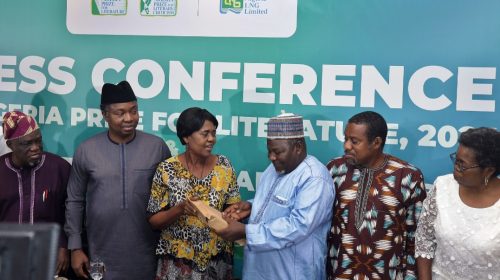
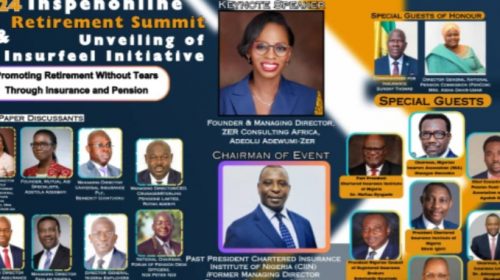
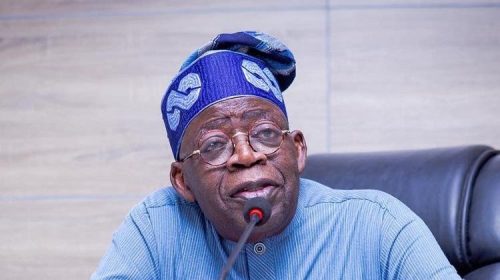
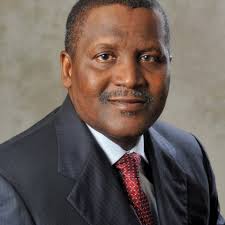
Leave a Reply